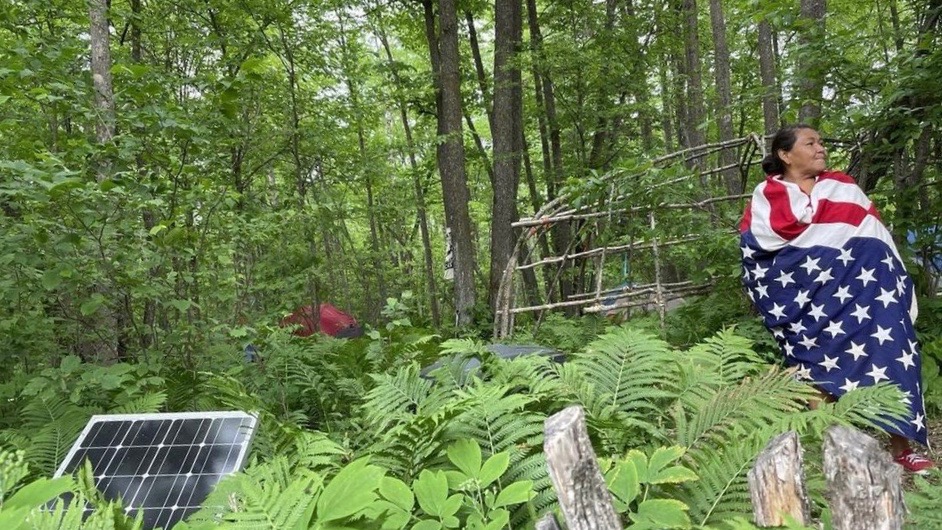Three Indigenous activists protesting the construction of an oil pipeline in the US State of Minnesota were arrested by the police on Monday, June 21. The arrests come at a time when Indigenous and environmentalist groups have ramped up efforts to prevent progress on the Line 3 pipeline project by Canadian oil giant Enbridge Inc.
According to a statement released by the Stop Line 3 campaign, the three activists or “water protectors” were part of a protest camp near Palisade, Minnesota. They were arrested at the Mississippi River crossing of the proposed pipeline. In a video of the arrests released by the campaign, the police are seen intimidating other protesters present there with threats of more arrests.
Indigenous leaders also alleged that the authorities have violated the 1855 Treaty of Washington which protects Indigenous rights over protected lands in the region by arresting the activists. They also claimed that local authorities have repeatedly violated the treaty by escorting Enbridge contractors and workers to the contentious site. Star Tribune recently reported that Enbridge has paid around USD 750,000 to the local law enforcement to police its project against protesters.
In a letter sent to the Minnesota Department of Natural Resources commissioner Sarah Strommen and Aitkin county sheriff Dan Guida, the 1855 Treaty Authority wrote that such actions only “cause fear and intimidate and interfere with our tribal member’s cultural and religious practices to protect and preserve our inherent right of freedom to believe, express, and exercise their traditional religious rites, spiritual and cultural practices.”
The ongoing Line 3 project is a proposed pipeline to replace the existing Line 3, supposedly in order to upgrade safety and capacity of the pipelines. It was first proposed in 2014 and construction began in November 2020 despite public opposition. The existing Line 3 pipeline transports close to 400,000 barrels of oil daily from Canada’s Alberta province to refineries in the midwestern US. The replacement pipeline is expected to more than double this capacity.
The construction for most of the pipeline, at a cost of USD 4 billion, has been completed in Canada and the US, with only the contentious Minnesota portion remaining. Part of the Minnesota leg of the pipeline passes through Indigenous lands of the Anishinaabe tribes, and will be constructed close to tributaries and headwaters of the Mississippi river.
Indigenous activists, environmentalists and residents of the region have raised concerns about the pipeline’s effect on the environment and the river, on which thousands depend as their primary source of clean drinking water. Earlier this month, a major protest and occupation of an Enbridge oil pump in the nearby Hubbard county was violently suppressed by the police, leading to the arrest of close to 250 people in a single day.

Despite massive opposition to the project, the Minnesota Court of Appeals on June 14 handed Enbridge a key victory by clearing the State regulator’s decision allowing the construction. There are still federal sanctions pending for the project after the discovery of a “potential historic structure” of Indigenous tribes in the region. This led to a stay on construction pending review in the area by the US Corps Army Corps of Engineers.
After the June 14 ruling, the Fire Light Camp, a large Indigenous protest camp organized by the RISE Coalition on the banks of the Mississippi River, was forced to disband. However, dozens of activists continue to demonstrate along the route of the proposed pipeline. Protesters are also putting pressure on president Joe Biden to cancel the project.





